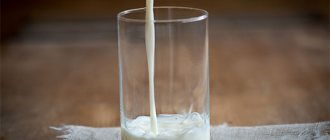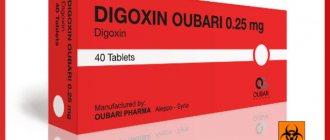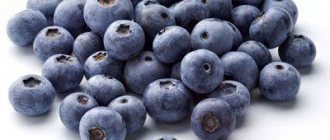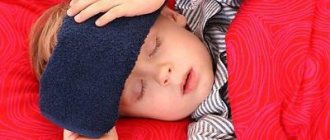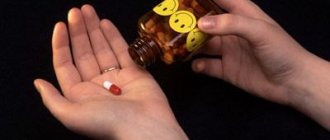Diarrhea is a problem that every person has encountered at least once in their life. According to statistics, this is the most common reason for visiting a doctor. Loose stools can be mild and temporary, but in some situations they can be potentially life-threatening.
To identify a threat in time, you need to pay attention to the color and consistency of stool. For example, diarrhea with foam in an adult is a cause for concern. It may indicate serious problems in the body.
Causes of diarrhea with foam
Foamy diarrhea can appear for many reasons, in which the digestion of food in the intestines is impaired. The most common causes of foamy diarrhea can be:
- binge eating
- eating rough or fatty foods
- alcohol or other drinks in excessive quantities
- intolerance to any food or drug
- stale or germ-contaminated food
- stress
- inflammatory or infectious intestinal lesions (enterocolitis)
- any diseases of other organs of the digestive system (gastritis, hepatitis, pancreatitis, etc.).
Dysbacteriosis and allergic reaction
This disease can cause foamy diarrhea. Dysbacteriosis occurs for various reasons. For example, after taking antibiotics that disrupt the balance of intestinal microflora. This pathology is very difficult to treat.
Foamy stools can also be caused by an allergic reaction if a person has consumed foods that irritate the stomach or intestines. In this case, it is recommended to contact a specialist as quickly as possible so that he can identify the product that caused this reaction.
Diarrhea with foam in an adult
Sometimes foamy diarrhea is the only manifestation of intestinal dysfunction in an adult . But more often this manifestation of diarrhea is accompanied by other symptoms that indicate general intoxication:
- the appearance of nausea and vomiting
- the presence of foam, mucus, blood in the stool
- elevated body temperature
- abdominal pain
- appearance of a rash.
If such symptoms continue in an adult for more than 2 days, then he must seek help from a doctor. Dehydration and intoxication can lead to cardiac dysfunction, a drop in blood pressure, and a sharp deterioration in health.
Diarrhea is especially dangerous for elderly or frail people
Diarrhea with foam in children
In a small child feeding on breast milk, diarrhea with foam may be a reaction to the insensitivity of some food (the mother ate something “wrong”). A baby with diarrhea can have stools from 8 to 12 times a day. In this case, feces are often green and may contain foam, blood, and mucus.
Lactose intolerance
In an infant, diarrhea with foam can occur when there is a conflict between the mother's fore and hind milk. In this case, the baby sucks out the milk that is easier to suck (front milk), and the hind milk remains in the breast. A large amount of lactose in first milk is difficult for infants to digest, leading to lactose intolerance.
Lactose deficiency in infants has the following manifestations:
- loose, foamy stool with a sour odor
- the child is feeling unwell
- nausea, vomiting
- elevated body temperature.
Lactose deficiency in a child is congenital and is associated with a violation of the ability of the pancreas to produce lactose. The degree of enzyme deficiency can be judged by analyzing the baby's stool.
It happens that a child, despite feeling normally, often experiences colic, bloating, and foamy diarrhea. At the same time, the baby eats with appetite, is active, and gains weight normally. In case of lactose deficiency, it is recommended to review the child’s diet. If he is bottle-fed, then low-lactose or fermented milk mixtures are used.
Celiac disease
Recently, many children have been diagnosed with celiac disease when the body does not have enzymes that break down the gluten protein found in cereals (oats, barley, wheat). This condition in a small child or infant may also be accompanied by diarrhea with foam. In this case, doctors recommend a special gluten-free diet.
Dysbacteriosis
Another cause of diarrhea with foam may be dysbacteriosis. The causes of dysbacteriosis can be different. This condition, for example, can occur after taking antibiotics, when the balance of intestinal microflora is disturbed. Dysbacteriosis is difficult to treat and requires consultation with a doctor.
How to treat intestinal upset after taking antibiotics?
Along with the harmful bacteria that cause the disease, antibiotics also destroy beneficial microorganisms. The intestinal microflora suffers most from their action. To avoid dysbiosis and associated intestinal disorders, when taking antibiotics you should drink probiotics, for example, Lactiale, Bifidumbacterin, Enterozermina, Linex or Hilak forte. If digestive disorders are systemic in nature, it is better to use synbiotics instead of probiotics, for example, Fluvir or Derma Pro. These are combination drugs that contain both prebiotics and probiotics. They are more expensive, but supply the body with more beneficial bacteria.
You need to take probiotics longer than antibiotics. For example, if the course of antibiotic treatment is 10 days, probiotics should be taken for up to 14 days. You need to take the probiotic at least 3 hours after taking the antibiotic. For example, if you take antibiotics at 8:00 and 20:00, then probiotics can be taken at 11:00 and 23:00.
Antibiotic-related bowel upset may begin 2 to 3 days after finishing treatment. In this case, you need to take a new drug for the intestines. For example, if you took a probiotic, you need to drink a synbiotic. Before this, of course, you need to consult with the doctor who prescribed the antibiotic, or with a gastroenterologist.
Figure 8 - Taking antibiotics is a common cause of diarrhea
It is best to select probiotics based on the results of stool culture. In this case, you will populate the intestines with exactly the bacteria that are lacking there. However, culture results have to wait 4–5 days, and diarrhea must be prevented as quickly as possible. Therefore, when prescribing probiotics, the decision is made almost at random.
Some patients prefer to use natural yoghurts instead of probiotics. This method of restoring beneficial intestinal microflora deserves attention provided that you are not allergic to milk. The main disadvantage of the method is that it is not known for certain which bacteria enter the body and their dosage. There may not be enough bacteria and diarrhea will still occur.
First aid for diarrhea
When sudden diarrhea appears, few adults immediately run to the doctor. Most try to help themselves so as not to end up in the hospital.
If you are absolutely sure that foamy diarrhea does not pose any threat to you and want to help yourself, then here are some recommendations for this.
- Dieting. All dairy, fatty, sweet foods are excluded from the diet
- “Astringent” food: decoction of rice, bird cherry or blueberry
- Lots of fluids (glucose-saline solutions such as "Regidron", still mineral water, dried apricot decoction) to maintain mineral balance in the body and remove harmful breakdown products
- Enema with chamomile decoction or activated charcoal to cleanse the intestines of harmful poisons
- Taking activated charcoal to remove toxins from the digestive system. This is a time-tested remedy
- Infusion of oak bark for intestinal sanitation. To do this, one teaspoon of oak bark is poured with half a liter of boiling water and left for 8-9 hours. After straining, take 2 tablespoons 4 times a day. The infusion is also used for cleansing enema
Treatment of diarrhea
If you consult a doctor for foamy diarrhea, the patient will be offered hospital treatment. An approximate treatment regimen is usually as follows:
- etiotropic therapy (except for mild forms of the disease) with drugs that suppress inflammation in the intestines - antibiotics or cephalosporins (depending on the severity of the disease, the patient’s age, concomitant diseases)
- antidiarrheals (loperamide, imodium) that suppress intestinal motility (not prescribed for children under 12 years of age)
- probiotics (Linex, Bifi-form, etc.) contain live microorganisms and restore intestinal microflora
- adsorbents (smecta, enterosgel, atoxil) to remove toxins for 5-7 days
- enzymes to restore digestion (festal, pancreatin, panzinorm) 7 - 10 days.
Many people take the appearance of diarrhea lightly, take a few pills, and the diarrhea goes away.
Self-medication often risks the disease becoming chronic, which can seriously undermine a person’s health in the future.
It is most important to prevent any intestinal infections by observing generally known sanitary standards about clean hands, using good-quality products, proper storage of dishes, using individual utensils, etc.
Therefore, take care of yourself, your children, and always be healthy!
Diarrhea with foam
The process of defecation, which in everyday life is most often called the term “stool”, is a process of natural cleansing of the body from food processed as a result of digestion and absorption. According to the norm established by medical specialists, an adult should have bowel movements up to three times during the day, but at least once a day.
If an adult does not have chronic diseases of the digestive system, disturbances in the functioning of the stomach and intestines, pregnancy, abdominal surgery, or stomach pain for any reason, then stool should not cause problems, difficulties or discomfort. The appearance of various abnormalities during defecation, including diarrhea, is a signal that negative processes are occurring in the body. Such disorders need to be given special attention; within the first day of their appearance, the reasons for their appearance must be determined and immediate treatment must be taken to eliminate the symptoms and possible consequences of the disease.
Diarrhea, or diarrhea, is a disease, the main symptom of which is a change in the consistency of the stool, it becomes liquid. If a patient develops diarrhea with foam, the causes of its occurrence can be very dangerous; acute diseases of the digestive system are possible. Foamy, loose stools require immediate treatment and should be disposed of as soon as possible.
How to treat intestinal upset caused by poisoning?
Poisoning is easily recognized by vomiting with a further increase in temperature. In this case, the most important thing is to remove the toxic substance and decay products from the body as quickly as possible. Therefore, do not rush to take Loperamide and analogues. Induce vomiting, rinse the stomach. Then drink any sorbent, for example, activated carbon, and try to drink as much as possible. For the first day, it is better not to eat at all, try to lie down more, especially if the temperature has risen. On the second day, you can start eating dietary foods: light broths, pureed soups with rice and vegetables, liquid viscous porridges, jelly. Anything that irritates the walls of the stomach is prohibited: soda, marinades, smoked foods, sweets, fatty foods.
In case of poisoning, the liver suffers, so at the same time as medications for stomach and intestinal upsets, you need to take hepatoprotectors (for example, Gepabene, Karsil, Ursoliv, Essentiale Forte N). Milk thistle seed meal is considered a good natural hepatoprotector, but if you have diarrhea, you should not take it - it will irritate the intestinal walls.
Figure 9 - Diarrhea during poisoning is a protective mechanism that removes harmful substances from the body
Symptoms of the disease
Frequent foamy diarrhea is a sign of impaired acidity in the gastrointestinal tract, fermentative dyspepsia. The patient may experience the following symptoms:
- stools are frequent, loose and foamy;
- stool has a characteristic, sour odor;
- The stomach rarely or very slightly hurts with such stools;
- the stools are pale and yellow in color;
- small rashes appear on the body;
- there are a lot of small bubbles of gas and mucus in the stool;
- weakness, lethargy;
- Sometimes the temperature rises several times during the day.
Sometimes diarrhea is simply the body’s reaction to nervous stress, but if it does not go away in less than 3-4 days, you should consult a doctor.
What does diarrhea mean?
Mild intestinal disorders that cause diarrhea do not threaten human life; it is another matter when diarrhea is accompanied by:
- dehydration;
- heat;
- weakness, dizziness;
- foamy diarrhea.
These are already reasons to consult a doctor, because they indicate pathological problems in the body.
With proper metabolism and functioning of the gastrointestinal tract, a person has no problems with defecation: feces are formed, do not have a special odor, and their color may vary. With diarrhea with foam, gas bubbles are observed in the stool, the color of the stool becomes light, even white, and they have an unpleasant sour odor.
This process may be accompanied by painful sensations in the abdomen, rumbling, and increased gas formation.
Important! If at the same time a child or an adult shows signs of general malaise, fever, weakness, these are indicators of infection.
Causes of diarrhea with foam
The appearance of an illness such as diarrhea with foam in an adult can occur for several reasons:
- Infection. Infection is accompanied by diarrhea, fever, and weakness. An adult has a stomach ache and the patient is vomiting. If you do not get rid of the infectious infection, then dangerous, difficult to treat consequences can occur. If foamy diarrhea appears, you should urgently submit your stool for laboratory diagnostics.
- An imbalance of microflora in the gastrointestinal tract is dysbacteriosis. This occurs due to long-term treatment with a course of pharmaceuticals that have a very negative effect on intestinal microorganisms, poor nutrition, and acute and chronic diseases of the digestive system. In case of dysbiosis, it is necessary to eliminate unpleasant symptoms by taking probiotics and prebiotics - drugs that have a beneficial effect on the intestinal microflora and restore it.
- Allergic reaction. The appearance of diarrhea mixed with foam can be caused by an allergy to certain foods in the diet. To get rid of foamy diarrhea, you need to consult an allergist who will select antihistamines.
- Helminthic infestations and other diseases caused by intestinal parasites. They can be contracted by eating unwashed fruits or vegetables, improperly processed meat, or from pets. When there are a lot of parasites, they begin to affect digestion, which causes the appearance of foamy, loose stools.
- Inflammation of the gastrointestinal tract. These are very dangerous diseases that cause unpleasant, sometimes painful symptoms, among which foamy diarrhea is one of the weakest. With such diseases, the patient usually has severe stomach pain. The disease can become chronic or cause serious complications if it is not eliminated, so you should consult a doctor from the first day signs of the disease appear.
- Lack of lactase enzyme. With this enzymatic disorder, milk sugar is not absorbed in the patient’s body, accumulates, and provokes malfunctions and disturbances in the functioning of the digestive system.
- Celiac disease. A disease characterized by inflammation in the intestines when a protein from cereals, gluten, enters the body. In order to get rid of yellow foamy diarrhea, the patient needs to switch to a gluten-free diet.
- Unbalanced nutrition, the presence in the diet of a large number of harmful, indigestible foods, fatty, stale foods. Also, diarrhea with foam can be caused by exotic foods or dishes with a lot of hot seasonings and spices that an adult body is not used to assimilating. Diarrhea and diarrhea are sometimes accompanied by symptoms such as nausea, vomiting, or a bloated stomach.
Drug treatment for foamy diarrhea
The treatment for foamy diarrhea in an adult will depend on the cause of its occurrence. The most important thing is not to try to diagnose yourself, and not to use self-medication methods to relieve symptoms. Any medical procedure must be coordinated with a medical specialist.
- If the appearance of yellow foamy diarrhea occurred one-time and is mainly associated with a malnutrition, then the best solution would be to take an adsorbent (Filtrum-Sti, White Coal, Activated Carbon). Sorbents will absorb harmful substances that cause intestinal irritation, pain and diarrhea and remove them from the body naturally. Since these drugs also absorb a lot of water from the body, while taking them you should drink filtered or boiled water often and in large quantities.
- When diarrhea caused by allergies occurs, medical specialists prescribe not only adsorbents, but also antihistamines to reduce the number of allergy symptoms and alleviate the patient’s condition.
- Disturbances in the intestinal microflora and diarrhea that arise as a result of them are stopped by taking medications that contain beneficial bacteria and microorganisms or create a positive environment for the development of surviving intestinal bacteria. Such drugs are taken over long courses and under the supervision of a doctor, since they are prescribed only after thorough laboratory diagnostics.
- When infectious diseases are detected, the doctor makes a decision: to prescribe antibiotic treatment to the patient at home or, in especially dangerous and complex cases, to send him to a hospital for treatment.
- If diarrhea was caused by parasitic diseases, strictly specific medications are prescribed, the action of which is aimed at one or another type of parasite (Dekaris, Nemozol). In case of parasitic diseases, not only the sick person, but also his family members need to undergo radiation treatment. It is necessary to treat for parasites and pets.
Nutrition for diarrhea
In addition to taking medications, the patient must follow a special diet to successfully get rid of unpleasant symptoms. There are certain nutritional standards for diarrhea. There are cases when, to recover, it was enough to simply exclude some harmful foods from the diet.
- If diarrhea occurs, you must avoid harmful, intestinal irritating foods, processed foods, home-canned food, fermented milk products, and fruits that cause dyspepsia. The patient should eat unsalted rice boiled in water. For baked goods, only rye bread is acceptable, and for fruits, bananas.
- A prerequisite is strict adherence to fluid balance in the body. Diarrhea causes severe dehydration, so the fundamental factor in the diet for diarrhea is drinking plenty of fluids. Drinking non-carbonated alkaline mineral water will be beneficial. The use of herbal teas is acceptable in cases where there is no allergy.
- First of all, it is necessary to restore intestinal functions lost during illness and soothe painful sensations if the stomach hurts. Therefore, those foods that cause irritation should be excluded from the diet.
If you follow these simple rules, your stool will soon return to normal and the problem will be resolved. Returning to normal foods and a normal diet should be slow and careful. You need to introduce different foods one at a time, carefully monitoring the condition of the body.
Folk remedies
In cases where diarrhea was not provoked by a dangerous disease in the body, you can use simple folk methods to strengthen stool at home. Infusions and decoctions of medicinal plants (St. John's wort, yarrow, rose hips, chamomile) and various fruits containing stool-strengthening substances (bird cherry, blueberries) have long been used. Various nuts (walnuts, hazelnuts) are good for getting rid of diarrhea.
It must be remembered that diarrhea with foam in prolonged cases can lead to dehydration, weakness and exhaustion of a person. If you do not pay attention to the symptoms of foamy diarrhea and a sore stomach in time, the consequence may be intestinal inflammation. Therefore, you need to take the disease responsibly and consult a doctor in time.
Diet
For successful and effective treatment, a patient with these symptoms must not only take appropriate medications, but also follow a diet.
Foamy diarrhea can be cured if you follow these dietary standards:
- During the diet, you should not eat foods that are difficult for the stomach to digest, such as corn. You should completely avoid foods that irritate the walls of the stomach. These are products such as semi-finished products, milk, cottage cheese and full-fat sour cream, home-canned food, etc.
- Recommended food is boiled rice. It is important that the rice is not salted. With this symptom, salty foods are contraindicated.
- Bakery products should be excluded from the diet. The only exception is rye bread. However, you should not abuse it.
- Also, during the diet, fruits must be excluded from the patient’s diet. The only fruit you can eat is banana.
- The patient must remember the need to maintain water balance in the body. The fact is that diarrhea leads to severe dehydration. Therefore, to prevent this, you need to drink plenty of fluids. The patient is allowed to drink weak tea, juice, nectar and mineral water. It is recommended to drink 1 liter of alkaline mineral water per day.
- If a person is not allergic to herbal teas, he can treat diarrhea with herbal infusions. It is important that herbal infusions are not hot.
- It is necessary to exclude from the diet all foods that cause intestinal irritation.
- During the diet, it is not recommended to eat exotic fruits and foreign dishes, such as papaya or sushi.
- The patient should completely avoid hot and mild seasonings and spices. You can't even add black pepper to your food.
- It is allowed to eat boiled chicken fillet, but it should not be salted.
- The patient should not drink any alcoholic beverages during the therapeutic diet. This will only make his condition worse.
If you follow these simple rules, the digestive system will quickly normalize and diarrhea will go away. After this, you cannot immediately eat foods that a person could afford before the diet.
Their introduction into the diet should be gradual. If you neglect this rule, diarrhea may occur again.
Why does foamy diarrhea appear?
The factors causing diarrhea with foam are classified as developing pathologies of a bacterial or viral nature. However, the problem may lie in the digestive organ. The causes of the unpleasant symptom are:
- dysbacteriosis;
- viral infection;
- bacterial infection;
- helminthic infestations;
- diseases of the stomach, intestines, pancreas or duodenum;
- lactase deficiency in a child;
- food allergies or food poisoning;
- celiac disease;
- overeating and poor nutrition.
The cause of diarrhea with foam in an adult is considered to be dysbiosis, when the balance of intestinal microflora occurs. This occurs due to long-term treatment with antibiotics. Sometimes dysbiosis develops quickly, and diarrhea manifests itself in the form of foamy stools with a yellow color. This condition is difficult to treat and requires long-term therapy.
Any infection can have irreversible consequences. In this case, liquid, foamy stools of a greenish tint are observed. Infectious diseases cannot be treated at home. This requires urgent medical attention. After diagnosis, the necessary treatment will begin.
When a person becomes infected with worms and parasites, this often occurs due to poor hygiene. Sometimes this occurs due to eating stale meat. If loose stools appear with foam, then the worms put a strong burden on the body. Therefore, the help of a doctor is required who will prescribe general blood tests and prescribe medications.
Folk remedies
Treatment of the disease at home is allowed only after an accurate diagnosis. Traditional medicine recommends decoctions of medicinal plants with astringent properties to normalize digestion:
- oak bark;
- Potentilla erecta (galangal root);
- plantain;
- knotweed;
- shepherd's purse;
- bird knotweed;
- marsh calamus;
- bird cherry leaves.
They are used both independently and as part of medicinal preparations. If the use of decoctions will be combined with drug therapy, you need to notify your doctor.
Chamomile tea is beneficial because it has anti-inflammatory and antiseptic properties. But it must be consumed in small quantities, otherwise it can cause repeated loosening of the stool.
What symptoms accompany foamy diarrhea?
Doctors characterize loose stools as dyspepsia. This means a violation of the digestive function of the stomach. The main manifestations of foamy diarrhea are:
- rumbling;
- stool contains inclusions of bubbles, grains or undigested foods;
- pain during bowel movements (in some cases this symptom is absent);
- loose stools are observed frequently;
- stool has a sour smell.
However, some signs differ between children and adults. This is due to diseases that manifest themselves in a particular age group.
Signs of foamy diarrhea in an adult
In some cases, in an adult, indigestion is considered the only symptom. However, it often happens that loose stools are accompanied by attacks of nausea and vomiting. In addition to foam formation, inclusions of mucus and blood are observed in the stool. A manifestation of disease and intoxication of the body is considered to be an increase in temperature to 38°C. In this case, pain occurs in the abdominal area. In some cases, rashes appear on the body.
If foamy stool and several additional symptoms continue for more than 2-3 days, then you should seek help from a doctor. The patient needs first aid and medical examination.
With diarrhea, dehydration occurs, which, with prolonged symptoms, leads to an imbalance in the water balance in the body. This leads to malfunctions of the cardiovascular system. Additionally, symptoms begin with a decrease in blood pressure. Otherwise, the patient’s well-being may deteriorate sharply.
Treatment of loose, foamy stools
To diagnose bowel disorders, consult a gastroenterologist. The doctor will begin to diagnose, based on the laboratory data obtained, and prescribe therapy. Treatment occurs in a complex of medications and a therapeutic diet.
Use of drugs
In some situations, self-medication becomes dangerous to health. If the patient is suspected of having an intestinal infection, then therapy must be carried out in a hospital setting. First of all, the patient is prescribed drugs that eliminate foamy feces. For this, Imodium or Loperamide is used.
Antibiotics are not prescribed for foamy stools. Many causes of unpleasant symptoms cannot be treated with such medications. During loose stools, the patient needs to restore the intestinal microflora. Therefore, probiotics are prescribed:
- Linux;
- Bifidubakterin Forte;
- Hilak Forte.
In case of poisoning and allergens in the body, adsorbents are prescribed. The drugs help remove toxins in 1 week. Such medications include Enterosgel, Atoxil or Smecta. To restore digestive function, use the enzyme agents Festal or Pancreatin.
After removing toxins from the body with the help of adsorbents, antihistamines are used. This helps restore digestive function.
To prevent dehydration from becoming a serious problem for the patient, Regidron solution is prescribed. After eliminating foamy diarrhea, it is recommended to drink plenty of water. Otherwise, additional sorbents are prescribed to remove remaining toxins from the body.
Prescribing proper nutrition
Regardless of the reasons for the appearance of loose, foamy stools, you must follow the prescribed diet. In the first days, the patient limits food intake. However, it is necessary to consume liquids in large quantities. During the day you need to drink 3 liters of water. This will help prevent serious consequences if diarrhea occurs along with vomiting.
It is recommended to eat only warm dishes. The temperature of the products should not exceed 65 0C and not be lower than 35 0C. Meals are taken in small portions so as not to put unnecessary strain on the digestive system. This will help gradually restore the damaged intestinal mucosa.
It is necessary to exclude spicy, fatty, salty and smoked foods from the diet. If you have an upset stomach, it is dangerous to consume fermented milk products. At the same time, it is highly recommended not to eat food that causes gas formation.
A diet for intestinal upset involves eating rye bread, bananas, viscous rice porridge, decoction or tea of chamomile and raspberries.
Diarrhea is often associated with dirty hands. However, loose, foamy stools also appear during pregnancy. At the same time, personal hygiene rules may also not be observed. The body of a young mother is susceptible to external influences and even reacts sharply to certain foods. Therefore, during pregnancy, strengthening fruits help against foamy diarrhea. For the expectant mother, it is recommended to drink a decoction of dried apricots, blueberries or take herbal teas.
When an adult develops diarrhea and the stool begins to foam, this is a manifestation of dangerous processes in the gastrointestinal tract. In this case, you need to observe the color of the stool. In some cases, foamy diarrhea becomes a sign of a violation of the acidity of gastric juice. Therefore, the appearance of diarrhea with foam in an adult is considered a serious reason for seeking medical help.
